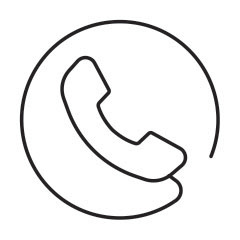Mastitis: Care Instructions
Your Care Instructions
Mastitis is an inflammation of the breast. It most often occurs while breastfeeding (sometimes called chestfeeding). Mastitis can happen when the milk sacs in the breast are too full and cause swelling in your breast tissue.
One of the main causes of mastitis is when your breasts make more milk than your baby needs. If this is happening, talk to your healthcare provider about ways to manage your breastmilk production.
If you have mastitis, it is important to keep breastfeeding, as stopping suddenly can make it worse. Treating mastitis right away helps prevent an infection from happening. Depending on your symptoms, your healthcare provider might prescribe antibiotics.
Follow-up care is a key part of your treatment and safety. Be sure to make and go to all appointments, and call your doctor or nurse advice line (811 in most provinces and territories) if you are having problems. It's also a good idea to know your test results and keep a list of the medicines you take.
How can you care for yourself?
- If your doctor or midwife prescribed antibiotics, take them as directed. Do not stop taking them just because you feel better. You need to take the full course of antibiotics.
- If you are exclusively breastfeeding, it is important to continue to feed your baby regularly, following their cues to feed. If your baby does not wake up by 3 hours, then wake them to feed.
- Feed less often on the affected breast to avoid producing too much milk.
- If your baby does not feed from the affected breast, or it is too painful to feed, hand express to remove the milk. Avoid pumping if possible, as this could damage your breast and nipples. Try not to remove more milk than your baby needs.
- If you are bottle-feeding your breastmilk, continue to pump and feed your baby regularly, following their cues to feed. Avoid pumping too much on the affected breast.
- Talk with your healthcare provider about medicines you can use, such as acetaminophen (Tylenol) or ibuprofen (Advil, Motrin) to relieve pain, swelling, and fever. Read and follow all instructions on the label.
- Try using a cold compress on your breast to reduce pain and swelling. Put ice or a cold pack on the area for 10 to 20 minutes at a time. Put a thin cloth between the ice and your skin.
- Avoid deep massaging the breast. This could damage your breast tissue and increase the inflammation. Light fingertip massage may be helpful.
- Wear a supportive bra that fits.
- Rest as much as possible.
- Drink extra fluids.
- Take care of sore or cracked nipples.
- Let your nipples air dry after feeding. Try letting some breast milk dry on your nipples.
- Avoid using saline soaks or castor oil on your affected breast or sore nipples. Ask your doctor or midwife before you use any other products on your breasts.
- Try applying a non-stick first-aid pad to your breast after each feeding.
When should you call for help?

Call your doctor, midwife, or nurse advice line now or seek immediate medical care if:
- You have worse symptoms of breast inflammation or infection, such as:
- Your symptoms do not get better within 24 hours.
- Increased pain, swelling, warmth, redness, or a colour change on your breast.
- Red streaks leading from a breast.
- Pus draining from a breast.
- A fever.
Watch closely for changes in your health, and be sure to contact your doctor, midwife, or nurse advice line if:
- You do not get better as expected.
- You have trouble with your baby's latch or breastfeeding.
- You feel sad, anxious, or hopeless for more than a few days
Where can you learn more?
Go to https://www.healthwise.net/patientEd
Enter Y207 in the search box to learn more about "Mastitis: Care Instructions".
